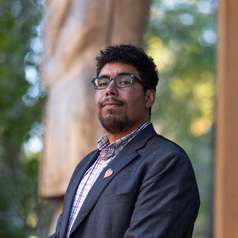
Deondre Smiles
Assistant Professor of Geography, University of Victoria
Deondre Smiles currently serves as an Assistant Professor of Geography. He is Black/Ojibwe/settler, and is a citizen of the Leech Lake Band of Ojibwe. Smiles is a geographer whose research interests are multifaceted, including Indigenous geographies/epistemologies, human-environmental interaction, political ecology, and tribal cultural resource preservation/protection. He currently serves as the Chair of the Indigenous Peoples Specialty Group of the American Association of Geographers (AAG); he is also a member of the Native American and Indigenous Studies Association (NAISA), and the Canadian Association of Geographers. (CAG). He also serves as a member of the editorial board of the journal Native American and Indigenous Studies.
Less ![]()

Derek Arnold
Professor, School of Psychology, The University of Queensland
Derek Arnold is a sensory neuroscientist who has published >100 papers, often in some of the world's most prestigious scientific outlets. He has specific research interests in Aphantasia - commonly known as mind blindness, Visual Perception and Time Perception.
Less ![]()
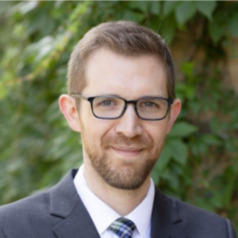
Derek Clinger
Senior Staff Attorney, State Democracy Research Initiative, University of Wisconsin-Madison
Derek is a Senior Staff Attorney with the State Democracy Research Initiative at the University of Wisconsin Law School.
Before joining the Initiative, Derek was a partner at the law firm of McTigue Colombo & Clinger in Columbus, Ohio, where his practice focused on federal, state, and local election laws, campaign finance, statewide and local ballot initiatives and referenda, voting rights, ballot access, and government transparency.
Derek received his bachelor's degree in Middle East studies and political science and his law degree from the Ohio State University. While in law school, he was an intern with the ACLU Voting Rights Project and the Campaign Legal Center.
Before practicing law, Derek worked in the communications department of the Ohio Secretary of State's office and also worked for several federal, state, and local political campaigns in Ohio.
Less ![]()
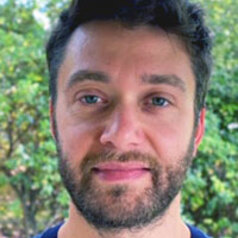
Derek Epp
Assistant professor in the Department of Government, The University of Texas at Austin
Derek Epp is an assistant professor in the Department of Government. He joined the faculty in 2017 from Dartmouth College where he was a postdoc within the Nelson A. Rockefeller Center. In May 2015, he received his Ph.D. in American Politics with a minor in Public Policy from the University of North Carolina at Chapel Hill. His dissertation is titled Information Processing and the Instability of Political Outcomes and he currently has a book expanding on themes from his dissertation forthcoming with the University of Chicago Press. He graduated from the University of Maryland, College Park in 2008 with a bachelor's in Political Science.
His research agenda focuses on policy change, asking why some policies persist - remaining the status quo for decades - while others undergo frequent adjustments. In particular, he is interested in measuring the capacity of institutions to attend to political information and then tracking the allocation of that attention across issues: what issues receive attention, for how long, and to what effect. He also study criminal justice, with a particular focus on racial patterns in police traffic stops.
Less ![]()
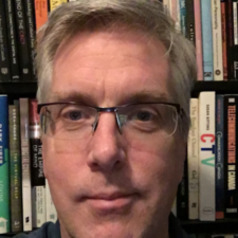
Derek Hrynyshyn
Contract Faculty, Communication & Media Studies, York University, Canada
Derek Hrynyshyn teaches in the Deparment of Politics and the Department of Communication Studies at York University. He is author of Limits of the Digital Revolution (Praeger 2017).
Less ![]()
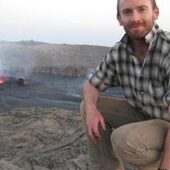
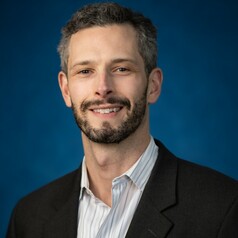
Derek Lief
PhD Student/Researcher, University of Michigan
My research on comparative politics in the Middle East follows three main streams. First, I am interested in how discriminatory legislation against ethnic minorities affects loyalty to the state. Second, I research how group economic decisions impact national identity. Finally, I consider how business networks impact firm performance, national identity, and development.
I hold a BA in History from Haverford College and a MPP and MA in Middle Eastern and North African Studies, both from the University of Michigan.
Less ![]()
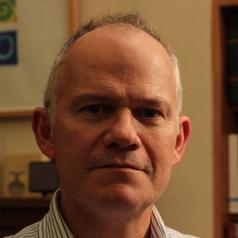
Derek Matravers
Professor of Philosophy, The Open University
Derek Matravers is Professor of Philosophy at The Open University and a Fellow of Churchill College, Cambridge. He has written Art and Emotion (OUP, 1998), Introducing Philosophy of Art: Eight Case Studies (Routledge, 2013); Fiction and Narrative (OUP, 2014); and Empathy (Polity, 2017). He is the author of numerous articles in aesthetics, ethics, and the philosophy of mind. He edits, with Paloma Atencia-Linares, The British Journal of Aesthetics.
Between 2017 and 2020 he directed, with Helen Frowe, the UK Government funded project, Heritage in War. A monograph detailing the findings of this project is due out next year: Stones and Lives: The Ethics of Protecting Heritage in War (OUP, 2024).
Less ![]()
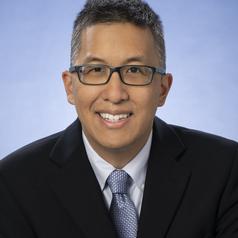
Derek Tsang
Associate Professor, Department of Radiation Oncology, University of Toronto
Dr. Derek Tsang is a radiation oncologist at Princess Margaret Cancer Centre in Toronto, Canada. He is an Associate Professor in the Department of Radiation Oncology at the University of Toronto. He completed his medical training at Queen’s University, followed by residency at the University of Toronto. He obtained fellowship training in paediatric radiation oncology at St. Jude Children’s Research Hospital in Memphis, Tennessee, and has a Masters’ degree in clinical epidemiology at the Harvard T.H. Chan School of Public Health. Dr. Tsang joined the Princess Margaret Cancer Centre in 2017, where he is a member of the paediatric and adult central nervous system (CNS) tumour site groups.
Less ![]()
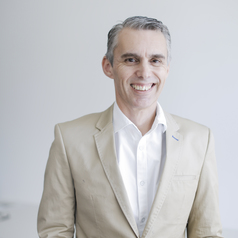
Derek Wilding
Research Fellow, Faculty of Law/Faculty of Arts and Social Sciences, University of Technology Sydney
I have a law degree from UQ and a PhD in media studies from QUT. Previous positions include Executive Director of the Australian Press Council, Manager at the Australian Communications and Media Authority, and Director of the Communications Law Centre at UNSW.
Less ![]()
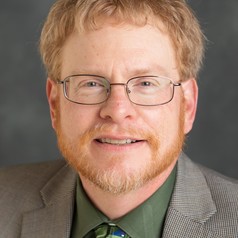
Derek H. Alderman
Professor of Geography, University of Tennessee
Derek H. Alderman is Professor of Geography and Betty Lynn Hendrickson Professor of Social Science at the University of Tennessee. He is a past President of the American Association of Geographers (2017-18) and founder of Tourism RESET, an interdisciplinary and multi-university initiative devoted to analyzing and challenging historical and contemporary social injustices in travel, tourism, and mobility.
Dr. Alderman’s specialties include race, public memory, civil rights, heritage tourism, counter-mapping, and critical place name study—all within the context of the African-American struggle for social and spatial justice. He is the author of over 150 articles, book chapters, and other essays along with the award-winning book (with Owen Dwyer), Civil Rights Memorials and the Geography of Memory. He is co-editor (with Reuben Rose-Redwood and Maoz Azaryahu) entitled The Political Life of Urban Streetscapes: Naming, Politics, and Place (Routledge) and co-author of Remembering Enslavement: Reassembling the Southern Plantation Museum (UGA Press).
Dr. Alderman's scholarship advances our understanding of the role of named places in struggles over civil rights, race, memory, and public space in America. He is a nationally recognized authority on the topic of street naming, especially for Martin Luther King Jr. He also explores, more broadly, place names as cultural arenas for reckoning with the histories and ongoing legacies of racism and as tools for promoting reconciliation, anti-racist and decolonial education, and more socially just landscapes. In 2022, Dr. Alderman was appointed by Secretary Deb Haaland to serve on the Department of Interior's Advisory Committee on Reconciliation in American Place Names.
Committed to publicly engaged scholarship, Dr. Alderman frequently uses his research to engage and inform the news media, government officials, community activists and organizations, and the broader public. He has been interviewed or quoted over 250 times in print, radio and television media outlets, including CNN, MSNBC, New York Times, CityLab, Washington Post, USA Today, The Guardian, and BBC Radio News. He is the recipient of a Distinguished Career Award from the Ethnic Geography Specialty Group of the AAG, a Lifetime Achievement Award from the Southeastern Division of the AAG, and a recently elected Fellow of the American Association of Geographers..
Dr. Alderman's recent work includes a NSF-funded project that examines the contested place of discussions of slavery at plantation museums in the southeastern United States, with an emphasis on reforming the way these institutions represent racism, memory, and African American identity. He is also involved a NSF-funded project that examines the role of counter-mapping, geospatial intelligence, and opposition research within SNCC, the important 1960s civil rights organization. In 2022, Dr. Alderman co-directed a National Endowment of Humanities-funded summer training institute for K-12 educators on the role of geographic mobility in the African American Freedom Struggle.
Less ![]()
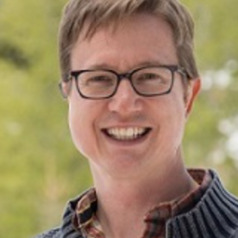
Derek H. Kiernan-Johnson
Teaching Professor of Law, University of Colorado Boulder
Derek Kiernan-Johnson studies the ethics of using narrative and visual rhetoric in legal persuasion and how judges make decisions and express them in writing. He teaches students how to dissect and synthesize law and fact, how to express and critique legal analysis and argumentation, and how to understand the American judicial opinion in historical and comparative context.
Derek went to public schools in Boulder, Colorado, and to college at Princeton University. At Princeton, he studied religion, dramatic performance, and music, writing Experiencing Toxcatl: an Ixiptla's Perspective (1996), a study of an Aztec sacrifice from the sacrificee's viewpoint, and Durch Sühn und Buß der Gnade Heil: Suffering and Salvation in the Operas of Richard Wagner (1997). He then studied English cathedral architecture at Wadham College at Oxford University before returning for law school at the University of Michigan. His studies at Michigan focused on constitutional law, education law, and meaning and performance in the law, the last interest of which culminated in Meaning in Miranda (1999).
After law school Derek returned to Colorado to clerk for Justice Michael L. Bender of the Colorado Supreme Court. He practiced law for six years at Caplan and Earnest, LLC, representing public-school clients in general-counsel, transactional, and litigation settings. Derek joined the CU Law faculty in 2007.
Derek enjoys spending time with his family, following UK & European soccer, hiking, cooking, playing billiards, enjoying beverages such as tea, beer, wine, and distillates, and identifying & tracking things like birds, cultural trends, and mammals.
Less ![]()
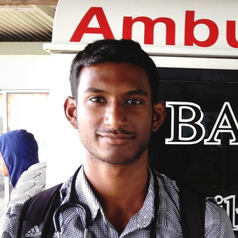
Deren Pillay
Researcher and Advanced Trainee in Public Health Medicine, Menzies Institute for Medical Research, University of Tasmania
Deren Pillay is a Public Health Medicine Advanced Trainee at the Menzies Institute for Medical Research, University of Tasmania. Deren works in the Environmental Health Research Group at Menzies researching the human health impacts of air pollution and is a member of the research translation subcommittee at the NHMRC Centre for Safe Air.
Less ![]()

Derick Blaauw
School of Economic Sciences, North-West University
Derick Blaauw received the Doctor Commercii (D-Com) degree in economics from the University of Johannesburg (UJ) in 2010. He is currently professor in the School of Economic Sciences at the North-West University (Potchefstroom Campus). Prior to taking up this position, he lectured economics on a full-time basis at the University of Johannesburg (UJ), Rand Afrikaans University (RAU) and at the Soweto and Bloemfontein Campuses of Vista University. He also lectured on a part-time basis at the University of the Free State (UFS) and Monash South Africa. His research interests are mainly in the field of labour and development economics. His current work focusses on the precarious forms of work and the socio-economic dynamics of vulnerable groups in the informal economy, such as car guards, day labourers, street traders and waste pickers. He has authored and co-authored several articles in respected accredited international and national journals and regularly presents papers at national and international conferences and symposia.
Less ![]()
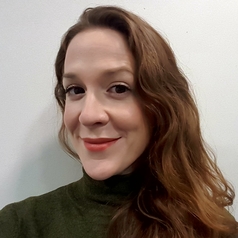
Derina Johnson
Postdoctoral Researcher, Trinity College Dublin, Trinity College Dublin
Prior to commencing her PhD under the supervision of Professor Robbie Gilligan at Trinity College Dublin's School of Social Work and Social Policy, Derina spent three years living on the Thailand-Myanmar border. There she collaborated with refugee and migrant groups on culturally appropriate and sustainable psychosocial care programmes for children and youth. Prior to this Derina ran her own play therapy practice in Dublin. Derina obtained her Bachelor of Arts (Honours) in Psychology from University College Dublin, and studied Play Therapy and Psychotherapy at the Children’s Therapy Centre with Eileen Prendiville.
Derina's PhD research explored the lives of young people growing up in legal and social marginalisation on the Thailand-Myanmar border. Drawing from 11 months' fieldwork, the research provides a glimpse into the realities of growing up in displacement and lack of documentation; as an “illegal migrant”, facing restricted mobility, limited access to education and other essential services, narrow migrant labour market demands, and everyday vulnerability to exploitation and poverty.
The research revealed nuanced insights into the legal and social precarity which characterises the young people's lifeworlds and ways of being in the world, and the normalisation of suffering and struggle in the quest to create a better future for them and their families. Within this extreme adversity, optimism and pragmatism, resistance and endurance, determination and flexibility emerged as key facets of the young people’s engagement in their worlds, as well as their agency and resilience in the face of certain uncertainty.,
Derina continues to work at Trinity College Dublin, as a postdoctoral researcher at the School of Medicine (Paediatrics) and Trinity Research in Childhood Centre, and as project manager of the Horizon 2020 funded energy efficiency socio-economic research project CONSEED.
Less ![]()

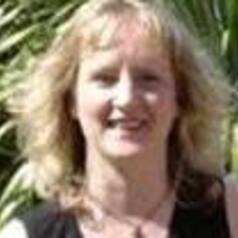
Derrylea Hardy
Research Officer, School of People, Environment and Planning, Massey University
I am a full-time researcher, seconded to the School of People Environment and Planning. My main area of research interest is in integrative wellbeing, which takes into consideration the economic, environmental, social and cultural factors associated with sustainable wellbeing, which is also the focus of my PhD.
I have been involved in externally-funded bicultural research programmes for over 12 years, including HRC-funded mental health research, FRST-funded sustainability research, and MBIE-funded collaborative research into the restoration of terrestrial and coastal ecoysystem services of importance to iwi and hapu.
Less ![]()
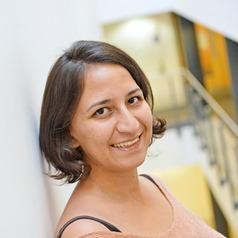
Derya Ozdemir Kaya
Lecturer in Work and Organisation, University of Sussex
I am a Lecturer in Work and Organisation at University of Sussex Business School. My research interests are care, affective labour, future of work and psychosocial studies.
Previously, I held research posts in teams investigating care homes for older people in the UK, whistleblowing and domestic abuse services with funding from ESRC, ACCA and EIDHR.
My PhD thesis explores the ethos of love for one's job and affective labour drawing on a multi-sited psychosocial ethnography of the Turkish fine-dining sector. My first peer-reviewed article based on this study has been published by the prestigious Organisation Studies journal.
More on my research and impact work is available in my ORCID profile: https://orcid.org/my-orcid?orcid=0000-0002-0442-1289.
Less ![]()
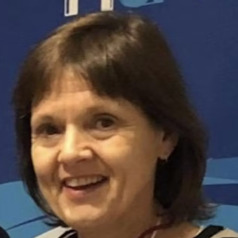
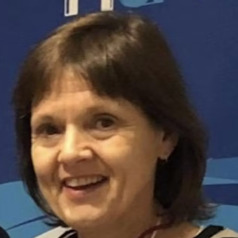
Deryn Lee Thompson
Eczema and Allergy Nurse; Lecturer, University of South Australia
PhD, MN, BN, PC Allergy Nursing
Experienced in Nurse-directed eczema care education, allergy care and education. Course co-ordinator Professional certificate of Allergy, University of South Australia. Eczema Nurse myProderm Adelaide, Allergy Nurse, AllergySA .
My PhD focused on how nurses use cognitive Learning Principles in parent education practice, helping parents to develop thinking, reasoning and problem solving skills, required to be confident and capable to deliver health care to their children. In an Action research study participants created a resource, comprising cues, based upon the Dimensions of Learning Framework, to help nurses guide parent education practice, and parents to optimise their leaning experiences.
Less ![]()
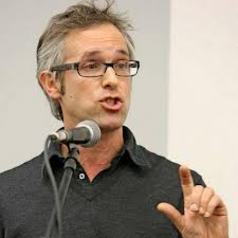
Des Freedman
Professor of Media and Communications, Goldsmiths, University of London
Des Freedman is interested in the relationship between media and power together with the political and economic contexts of media policymaking and regulation. He is an editor of the Sage journal 'Global Media and Communication' and was previously on the management committee of the COST programme A20, 'The Impact of the Internet on the Mass Media in Europe'. He was awarded an ESRC grant in 2005 to examine the dynamics of media policy-making in the UK and US. Des received an AHRC research leave award in 2006 to complete The Politics of Media Policy for Polity Press. He was a participant in the 'Spaces of the News' project in the Goldsmiths Leverhulme Media Research Centre, co-editor of the 'Unversities and Capitalism' section of openDemocracy, a member of the National Council of the Campaign for Press and Broadcasting Freedom and is the current chair of the Media Reform Coalition. He is currently writing a book on The Contradictions of Media Power for Bloomsbury (due 2014).
Less ![]()
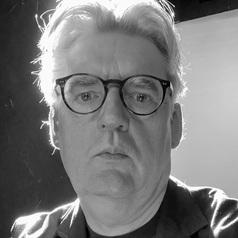
Des O'Rawe
Senior Lecturer in Film Studies, Queen's University Belfast
Des O’Rawe is a senior lecturer in Film Studies at Queen’s University Belfast, where he is also a Research Fellow at the Mitchell Institute for Conflict Transformation and Social Justice. He is interested in interdisciplinary approaches to the study of film and visual culture. His publications include: Regarding the Real: Cinema, Documentary, and the Visual Arts (Manchester University Press, 2016), and Post-Conflict Performance, Film and Visual Arts: Cities of Memory (Palgrave Macmillan, 2016).
Less ![]()
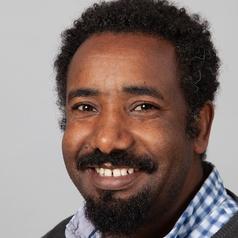
Desalegn Chala
Researcher, Natural History Museum, University of Oslo
Desalegn Chala holds a PhD in Ecological Modeling from the University of Oslo and has over a decade of expertise in the field. Currently a multidisciplinary researcher at the University of Oslo, his experience spans GIS, remote sensing, ecological niche modeling, molecular genetics, and biodiversity digital twins. His research interests include food security, biogeography, conservation biology, and related disciplines.
Less ![]()
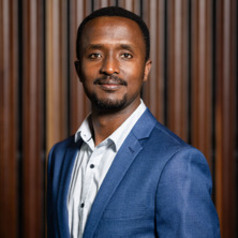
Desalegn Markos Shifti
Postdoctoral Research Fellow, Child Health Research Centre, Faculty of Medicine, The University of Queensland
Dr Desalegn Markos Shifti (PhD, MSc, BSc) is a Postdoctoral Research Fellow at the Child Health Research Centre (CHRC) at the University of Queensland. He is currently engaged in the comprehensive investigation of the prevalence, natural history, causes and consequences of allergic diseases.
Desalegn obtained his PhD in Clinical Epidemiology and Medical Statistics from the University of Newcastle, Australia, in 2022. Before pursuing his PhD, Desalegn worked as an Assistant Professor, Lecturer, and Graduate Assistant at various universities in Ethiopia, where he held both academic and research roles.
Desalegn has authored and co-authored several peer-reviewed research articles published in high-impact journals, such as the Lancet, JAMA Paediatrics, JAMA Oncology, and the International Journal of Public Health. He has expertise in several epidemiological and statistical skills, including generalised linear modelling, multilevel modelling, causal inferences for observational studies, mediation analysis, socio-economic assessment, geospatial analysis, big data analysis, systematic review, meta-analysis, and network meta-analysis.
Desalegn collaborates widely with public and clinical health researchers within Australia, low and middle-income countries, and internationally, across epidemiological studies. Key areas of interest and collaboration include allergies, maternal and child health, Indigenous health and well-being, reproductive health, health services research, chronic disease, and public health.
Less ![]()
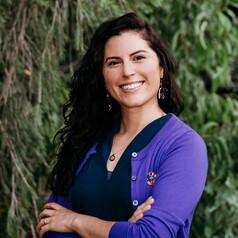
Desireé LaGrappe
PhD Candidate & Coordinator, Reducing Gender-based Violence Network | NHMRC and Fulbright grantee, La Trobe University
Desireé LaGrappe, MSN/MPH, RN is a National Health and Medical Research Council (NHMRC) PhD Scholar and Fulbright grantee at La Trobe University’s Judith Lumley Centre, School of Nursing and Midwifery. She is the Coordinator of La Trobe's Reducing Gender-based Violence Network (ReGEN) and a Sessional Lecturer. Her PhD research focuses on reproductive coercion and abuse, a form of gender-based violence describing controlling and abusive behaviors over contraception use, pregnancy, and abortion decisions. The project is a part of SPHERE, an NHMRC-funded Centre for Research Excellence to improve sexual and reproductive health services for women across Australia. Desireé is a public health nurse clinically accredited in sexual and reproductive health with 15 years’ experience in nursing and research within the U.S.A., Australia and select low- to middle-income countries. She is a recent Fulbright Public Policy Fellow having worked in Vietnam with the World Health Organization's Human Reproduction Programme Alliance for Research Capacity Strengthening in Sexual and Reproductive Health and Rights, Regional Hub for the Western-Pacific, Hanoi Medical University. Desireé has a Bachelor of Science in Nursing (Honors) from the University of North Carolina at Chapel Hill and a Master of Nursing/ Master of Public Health from Johns Hopkins University.
Less ![]()

Désirée Lim
Assistant Professor of Philosophy, Penn State
Désirée Lim is an assistant professor in the Department of Philosophy and a research associate in the Rock Ethics Institute. She completed her PhD in Philosophy at King’s College London and was a postdoctoral fellow at the McCoy Center for Ethics in Society at Stanford University. She was awarded the Association for Political Thought/Cambridge University Press Graduate Student’s Prize in 2015 and was a Norman Malcolm Fellow at Cornell University in 2014.
Désirée’s primary research and teaching interests lie in contemporary political philosophy, with a special focus on the concept of social or relational equality. What does it mean for people to relate to each other as equals, rather than superiors and inferiors? What exactly is wrong with being treated as an inferior? Furthermore, what kinds of political conditions are necessary to protect or enhance social equality, especially that of persons from historically disadvantaged groups? Applying these questions to a concrete realm, Desiree’s research investigates the demands that the social equality of noncitizens exacts on present-day migration and citizenship policy. She has argued that skill-selective immigration policies, which are generally regarded as morally neutral or even desirable, are actually damaging to the social equality of women and low skilled migrants. In more recent work, she has analyzed how the structure of private refugee sponsorship programs could be adapted to better preserve equal relationships between refugees and their sponsors.
Désirée is currently working on a book project, Immigration and Social Equality, which provides a distinctive social egalitarian critique of existing immigration practices. She also has strong interests in bioethics, feminist philosophy, and the critical philosophy of race.
Less ![]()
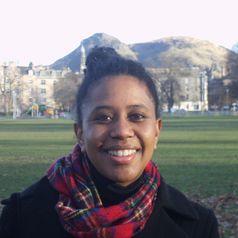
Desné Masie
Visiting Researcher in International Political Economy, University of the Witwatersrand
Dr Desné Masie is visiting researcher at the Wits School of Governance in international political economy. Her research programme is primarily in international economics, covering financialisation, poverty and inequality, and African geopolitical economy. She is the co-host of the African Arguments podcast, an economics contributor to The Times, and an associate of the Democracy Works Foundation. She was a capital markets editor at the Financial Mail in Johannesburg, and the corporate relationship manager of the Royal African Society in London. She has had invited speaking engagements at the Frontline Club and the Institute of Commonwealth Studies in London. She holds a PhD in Finance (Edinburgh), MSc Finance & Financial Law (London), BA Hons (Unisa) and BA (Wits).
Less ![]()
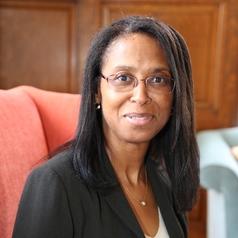
Detris Honora Adelabu
Clinical Professor of Applied Human Development, Boston University
Detris Honora Adelabu, Ed.D., Clinical Professor, Counseling Psychology and Applied Human Development, Boston University Wheelock College of Education and Human Development. Professor Adelabu is a student-centered, mission-driven educator committed to supporting and enhancing the academic development and life opportunities of first-generation, lower-income, and underrepresented Students of Color.
Less ![]()
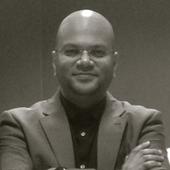
Dev K (Roshan) Boojihawon
Associate professor of Strategy and International Business, University of Birmingham
Less ![]()
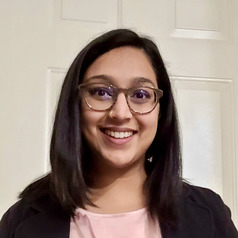
Devanshi Patel
Ph.D. Candidate in Clinical Psychology, Oklahoma State University
Devanshi Patel is a pre-internship graduate student in the Clinical program. Her research explores social perceptions of parenting and investigates stigma toward parents. Her thesis examines whether – and why – parents of children with "obesity" are stigmatized, and her future work will take intersectional approaches to understanding the role that body shape – along with target identity features (e.g., gender, race/ethnicity) – play in weight stigma.
Less ![]()

Devasheesh Bhave
Associate Professor of Organisational Behaviour and Human Resources, Singapore Management University
Less ![]()
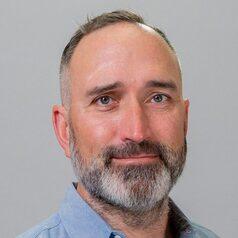
Devin Griffiths
Associate Professor of English and Comparative Literature, USC Dornsife College of Letters, Arts and Sciences
I write about the relation between literature, science, and the environment. My work has appeared in various academic journals, including Critical Inquiry, English Literary History, Studies in English Literature, Victorian Studies, and Book History. My first book, "The Age of Analogy: Science and Literature Between the Darwins," published in 2016 by the Johns Hopkins University Press, examines how historical novels shaped both the life sciences and the humanities, by means of a new comparative method that established our modern, relational understanding of history. It was shortlisted for the British Society of Literature and Science’s book prize, and was runner-up for the first book prize of the British Association for Romantic Studies. I am also the co-editor of "After Darwin: Literature, Theory, and Criticism in the Twenty-First Century," which was published by Cambridge University Press in 2022. The collection gathers an international roster of scholars to ask what Darwin’s writing offers future of literary scholarship and critical theory, as well as allied fields like history, art history, philosophy, gender studies, disability studies, the history of race, aesthetics, and ethics.
I am now working on a new book project, “The Ecology of Power,” which examines how Marxist and Darwinian philosophy offer alternative models for ecocriticism and the energy humanities.
Less ![]()
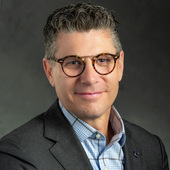

Devon LaBat
Doctoral Candidate in Legal Psychology, Florida International University
Devon received her Bachelor of Science in Psychology and Criminal Justice from Iowa State University. She is pursuing a PhD in Legal Psychology at FIU. Her research interests broadly include jury decision making, interrogations and false confessions, and topics related to police psychology.
Less ![]()
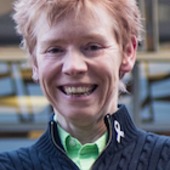
- Market Data




















